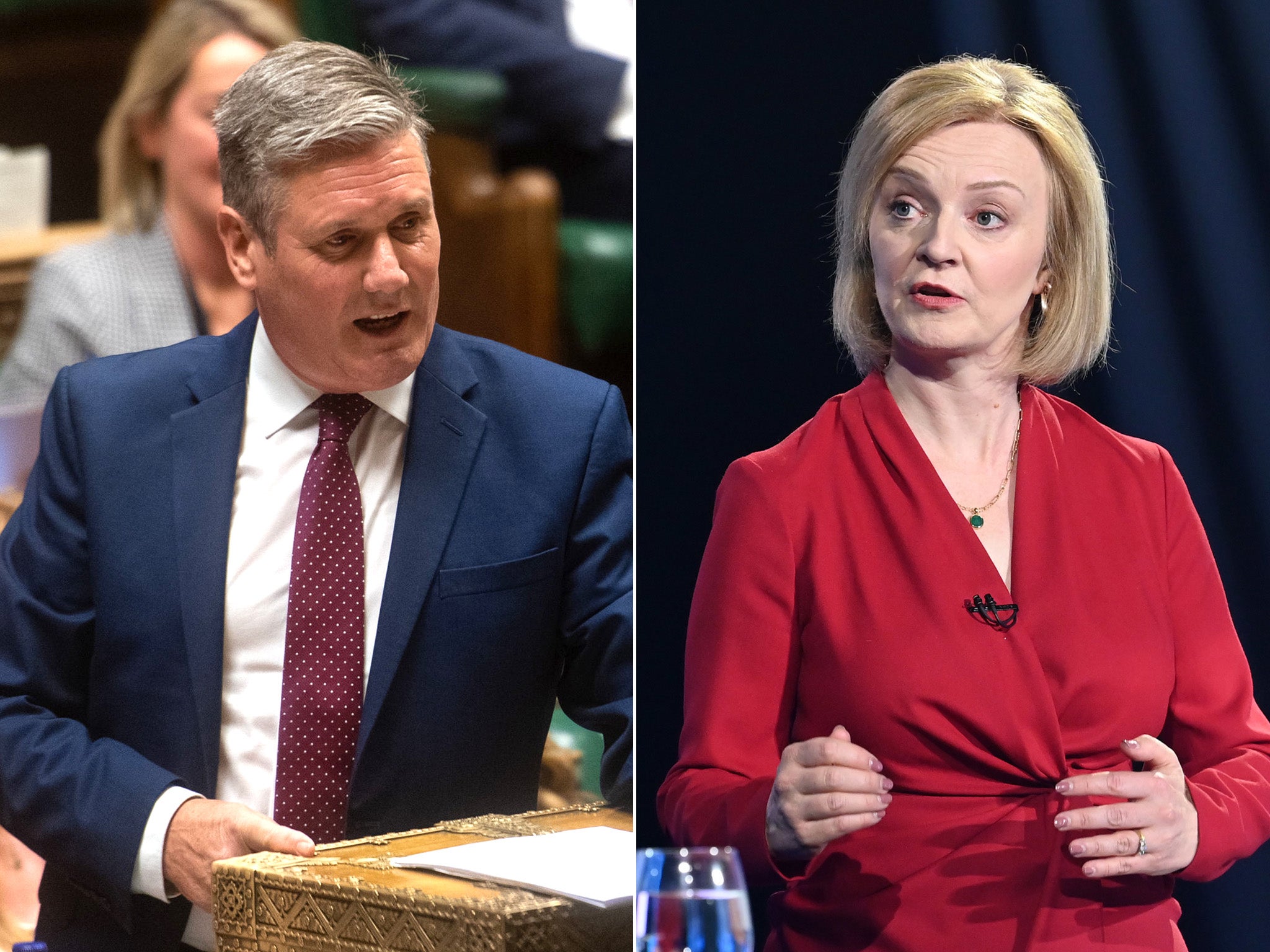Keir Starmer’s biggest gamble yet? Backing Liz Truss on bankers’ bonuses
Shadow chancellor Rachel Reeves said Labour will ‘unashamedly champion’ the City, writes John Rentoul. A lot of Labour voters won’t like it – and that suits her fine


Sometimes politics is painted in primary colours, and a splash of an unexpectedly bright shade catches the voter’s eye. Keir Starmer and Rachel Reeves’s refusal to reimpose a cap on bankers’ bonuses may be one such moment.
It is the boldest statement yet that the Corbyn era is dead and buried. The scrapping of the cap was announced by Liz Truss during her brief period as a punk libertarian prime minister, and was delivered by Rishi Sunak, the “out-of-touch” former Goldman Sachs banker, at the end of October last year.
At the time, Reeves led Labour’s condemnation of the decision, “in the midst of their cost of living crisis”, which, she said, “tells you everything you need to know about this government”. Now she says she won’t restore the cap if she becomes chancellor, which tells you a lot, if not quite everything you need to know, about the character of a probable Labour government. Labour is now as pro-banker as the pro-capitalist government it seeks to replace.
What a gift to Sunak, who was able to say at Prime Minister’s Questions that he was “surprised” that Labour supported Conservative policy on bankers’ bonuses. Starmer found that his attack on the government for the rising costs of mortgages had blown up in his own hands before he had the chance to toss the grenade over the despatch boxes.
Starmer’s assault depended on portraying Sunak as out of touch, including the personal remark that £1,000 extra a month “may not seem like a big deal to the prime minister”. But the Labour leader had undermined himself by saying that the bankers could keep their bonuses.
And what an absolute gift to Stephen Flynn as well, the Scottish National Party leader in the Commons, who had the easy option of declaring a plague on both the main parties’ houses. He called Labour’s retreat “shameful” and ironically congratulated the government on getting the Labour Party to agree with its own vision of a “bleak future”.
Flynn was part of the predictable backlash, including from Jeremy Corbyn himself, who tweeted: “Refusing to reinstate the bankers’ bonus cap is a political choice to enrich the wealthy.” There will be many Labour Party members who agree with him, and with his sarcastic addition: “4.2 million children are living in poverty, but will nobody think of the bankers?”
The policy itself hardly matters at all. But it has symbolic value in expressing disapproval not just of high pay but of financial services as an industry
For Starmer and Reeves, though, the backlash is part of the plan, and the pain of one awkward PMQs is a price worth paying for reinforcing Labour’s pitch as the party of business at its big conference tomorrow.
On this part of the internal debate in the party and the shadow cabinet, Starmer has made his decision. He knows that a cap on bonuses would appear to be popular, and that it would put heart into committed Labour supporters who want the party to stand for something, and who want to emphasise differences in values between them and the Tories. But he has been persuaded by the Blairite argument that he can take no risks with conventional business opinion. There may be many business leaders, especially of small businesses, who take a dim view of overpaid bankers, but most of the chief executives who are clamouring to ingratiate themselves with the incoming government at the Labour jamboree tomorrow would be unsettled by the rabble-rousing populism of restoring the cap.
The policy itself hardly matters at all. The only practical effect of the cap on bonuses was to make banks increase the basic pay of their star performers. But it has symbolic value in expressing disapproval not just of high pay but of financial services as an industry. Starmer and Reeves do not want to be painted as puritans who regard Britain’s most successful export sector as morally tainted.
After all, not even Gordon Brown imposed a cap on bankers’ bonuses – even at the time when popular anger was at its peak after the financial crash – and Brown wasn’t afraid of being fractionally more socialist than Tony Blair. Paradoxically, the cap was introduced in 2014 by the EU, during the coalition government. That it was an EU law was, of course, one more reason for Truss and Sunak to get rid of it.
Once it had gone, it required a different kind of decision for Starmer and Reeves to bring it back. If Truss had left it alone, or if Sunak had reversed Truss’s decision before it was implemented, there can be no doubt that Labour would have kept the cap. Instead, Labour had the chance to advertise its economic orthodoxy in a splash of bright primary colour. Lots of Labour supporters won’t like it, which will make the pitch to Tory-minded swing voters all the more effective.



Join our commenting forum
Join thought-provoking conversations, follow other Independent readers and see their replies
0Comments